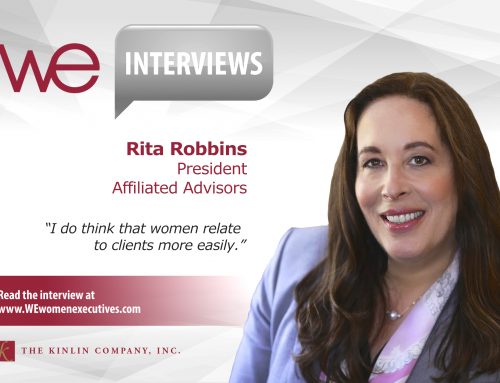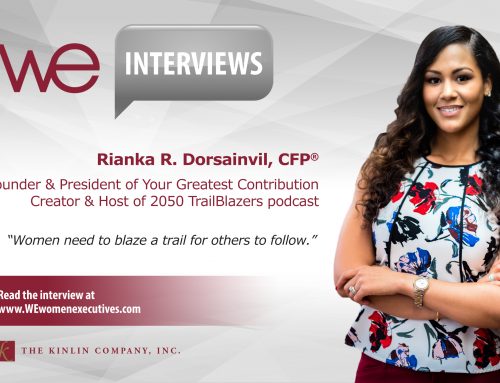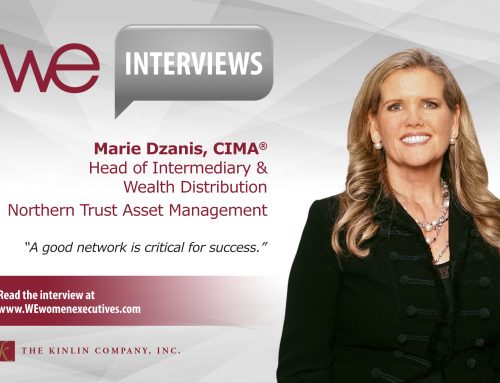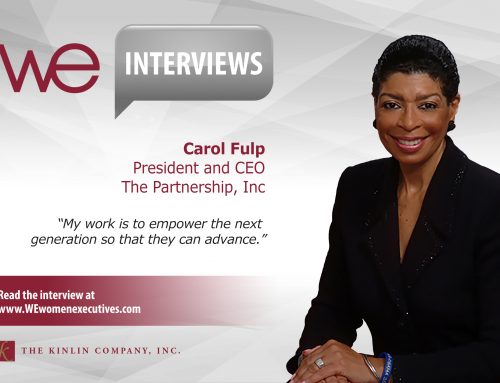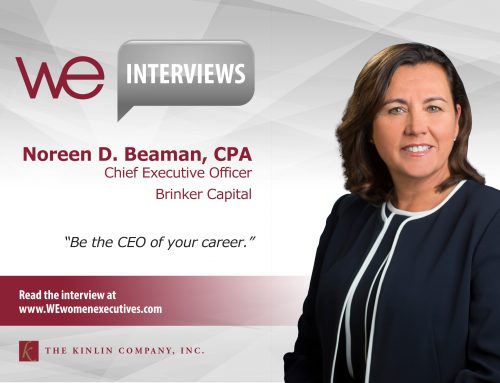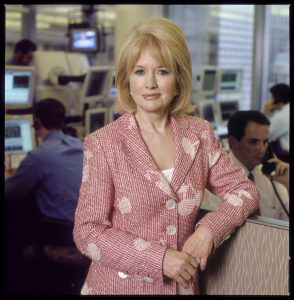 Consuelo Mack
Consuelo Mack
Founding Anchor
Managing Editor
Executive Producer
Consuelo Mack WEALTHTRACK
Consuelo Mack gives new meaning to the label ‘multi-tasker.’ She is the founding anchor, managing editor and executive producer of the weekly television show Consuelo Mack WEALTHTRACK, a public television program devoted to long-term diversified investing–the only program of its kind on the air. Mack is also the owner of Mack Track Inc., the company that produces the show and, as such, is responsible for raising funds to support the weekly half-hour program. She chooses the guests, writes the program, does research for the show, interviews the guests, and lends a hand in the weekly editing of the program.
Mack runs WealthTrack with the help of a full time senior producer and other part time professionals. In the past year they have revamped the program’s website to provide viewers with additional proprietary content including exclusive interviews on EXTRA.
Recently the team introduced WealthTrack Women on its website, a series of interviews with top women financial advisors dedicated to helping women build financial security through different phases of their lives. Specific episodes focus on retirement, divorce, recently widowed, same sex marriages, single moms and caregivers for parents.
Mack is incredibly active outside of her business as well. She is a member of several nonprofit boards, including those of the YMCA of Greater New York (where she has attained emeritus status) and the Museum of American Finance, the country’s only independent museum devoted to the history of finance. She’s the proud mother of a U.S. Marine who is on his second tour in Afghanistan and the wife of a former federal prosecutor who’s now in private practice. “I have a full life,” Mack says, with no small amount of understatement. We recently met in New York to talk about the trajectory of her amazing career and what she has learned along the way.
In Part Two of our interview, Mack reflected on the lessons she has learned over the course of her career in finance.
Opportunities are made
After more than two decades, Mack has undeniably made her mark in the field of financial journalism. What, I asked, has been the most difficult aspect of her career?
“Finding a television job as a financial journalist. When I started in television, you basically had three networks—you didn’t have much cable—and CNN was a fledgling network. Fox and CNBC didn’t exist and the internet hadn’t been created. The networks were it, and they weren’t interested in financial journalists. There were one or maybe two financial reporters at each network, obviously male and older than I was at the time. Even they had very little airtime. So the most difficult challenge was finding a place to work. That’s why I started at a small station in New Jersey.
“Looking back, I am amazed at how many of the professional opportunities in my life were created by entrepreneurs, including myself! In the early 80s, a creative magazine journalist and TV producer named Denny Crimmins came up with the idea that men would watch business news in the morning. He got venture capital financing and approached ESPN to do a live morning show. The concept was that guys, who watched sports on ESPN at night, would wake up with the TV still tuned to that channel. Denny recruited me to co-anchor the show, which he called Business Times. We did the first morning business show on TV, two hours of live television on ESPN, from six to eight a.m. every morning.
“I co-anchored the program with Bill Hartley, a former Wall Street Journal reporter. With the exception of one woman reporter, everyone else on the program was male and from the print world. I was the only one with television experience. We had a blast. We were pioneering serious business journalism on television and loved every minute of it, except for the hours, which were brutal.
“When the money ran out for that program, I was approached by another entrepreneurial manager, Jamie Bennett, who was an executive at Walt Disney’s then brand new syndication unit, Buena Vista. He wanted us to launch a new daily business program for syndication on network television stations. I thus became the first woman to solo anchor a business program on network TV. Today’s Business was launched by me and two fabulous producers, Ron Tindiglia and Fred Rheinstein. They were wonderful to work with. It was a success by every measure except that Disney realized it was more comfortable with entertainment than business programming, so they pulled the plug after a year.
“Luckily, The Wall Street Journal had been watching the show and approached me to be the sole anchor and managing editor of their weekly program, “The Wall Street Journal Report.” It was a dream come true. I spent more than a decade at the Journal which was, and I think still is, the best newspaper in the country. They were incredible journalists and professionals. With the TV program I was able to attend the news meetings and the editorial page meetings, a bridge no one else was crossing, and benefit from the world class journalists in both. I honestly felt as if I had died and gone to heaven.
“Nothing lasts forever, however, and The Wall Street Journal decided to get out of TV. I found myself traded with the program to CNBC where I started anchoring a daily morning show again, MarketWatch; created a daily Strategy Session segment and anchored the weekly show; and finally filled in for Louis Rukeyser on his iconic PBS program. When Lou died, I decided I wanted to create a different iteration of Wall Street Week, one focused on long-term investing. CNBC wasn’t interested, so I talked to some long-time sources from Wall Street about backing it and going out on my own. My guardian angel was Bob Doll, then running Merrill Lynch’s asset management division: Merrill Lynch Investment Management (MLIM). MLIM decided it wanted to create a brand advertising campaign and they did it with the launch of Consuelo Mack WealthTrack in 2005. MLIM, which was then taken over by BlackRock, was our sole sponsor for the first four years of our existence.
How, I asked Mack, had she maneuvered her way through this male-dominated environment?
“I just didn’t think about being a woman among males. We were peers. And I had an advantage: I had Wall Street, financial news and television experience, an extremely rare combination at the time. In retrospect, the fact that I was a young blonde woman early on was probably an advantage. I just didn’t realize it at the time. Needless to say that advantage has long since been lost, and I am grateful it never even occurred to me to rely upon it!
How Real is Gender Bias?
Having established that Mack got her start in a predominantly male environment, I asked if most of her interviews today were men. When she answered affirmatively, I inquired if she believed there to be a gender bias issue even today.
“It is an issue,” Mack conceded, “but becoming less so. My goal on Consuelo Mack WEALTHTRACK isto help our viewers build long-term financial security by interviewing the best brains in the financial business. Many of my guests are money managers who have long-term track records. So I’m dealing largely with men who have a minimum of 10 years of independently monitored performance. Most have track records of 20 years or more, through multiple market cycles. It’s a fact of life that when we talk about the Great Investors, we’re talking about mostly men who are in their 60s at least.
“I’m now identifying the next generation of Great Investors, individuals with at least a decade of independently tracked performance. The youngest are in their late 30s-early 40s and there are women among them, such as Kathleen Gaffney, who ran the Loomis Sayles Bond Fund with bond legend Daniel Fuss until joining Eaton Vance a few years ago. She is at the top of the game, as is Causeway Capital Management’s Sarah Ketterer, but the number of women in those positions are still few and far between.
“It is easier to find women who are what we call Financial Thought Leaders. Obviously Fed Chair Janet Yellen is at the top of the list. Economist Nancy Lazar, founder of ISI Group and Cornerstone Macro; Mesirow Capital’s economist Diane Swonk; and Calvert Funds’ CEO Barbara Krumsiek all come to mind. And there are fabulous women financial journalists who are considered Financial Thought Leaders. I worked with a number of them at The Wall Street Journal, including Pulitzer Prize winner Karen Elliott House. Among those actively writing now are New York Times’ columnist Gretchen Morgenson and the Financial Times’ Gillian Tett.
“Quite honestly, I need to work harder to identify the next generation of top female money managers. It is much easier to find women who are considered leaders in their profession when we branch out into other investment areas. There are superb women financial advisors; tax, trust and estate lawyers; analysts; and experts in real estate, art and antiques.
“At WealthTrack, we’re very cognizant of the fact that women have specific financial challenges that men do not. For starters, we live longer. The vast majority of us will spend the last years of our lives alone. We spend three times as much as men do on long-term healthcare. Generally, we have earned and saved less than men have. We also have different views of money and what we want it to do for us in our lives. It’s not about portfolio performance; it’s about lifestyle and values.
“That’s why we recently launched WealthTrack Women on our website. We have conversations about money and financial planning with a group of award- winning women financial advisors who specialize in helping woman through the various stages of our lives. At some point we are all single, many of us marry and have children. We become caretakers for our children, spouses and parents. We divorce and are widowed. Each role has specific financial considerations and we are providing advice for each one. We are very excited about this new project.
Money is a Tool
Given the increasing number of women managing their own money, I asked Mack if she would be willing to share her top two or three pieces of advice for women trying to plan for retirement.
Take ownership of your financial future. Recognize that at some point you will be in charge of your finances so get involved now.
Get a financial plan. Go to a reputable financial advisor to discuss your financial goals or visit the many online resources available through excellent, well-run firms such as Charles Schwab, Vanguard, and T. Rowe Price.
Don’t overlook the obvious. “Social Security is a big benefit and there are ways to take advantage of it. Social Security Solutions is a great website to explore, even if you’re well-to-do. It’s a no-brainer as a source of guaranteed income.”
Don’t be too conservative. “Women tend to be risk averse, but our long life expectancy means we need investment growth. Stocks are still a good place to invest a portion of one’s portfolio.”
Advocate for Yourself
In light of the tremendous professional success that Mack has realized over the course of her career, I asked her if she had learned any lessons that she would like to share. Her answers came without hesitation.
1) Don’t think of yourself as a woman in business, think of yourself as a business professional. “I never played the woman card and I think that made a huge difference in people accepting me as an equal and a professional.I also set very high standards for myself and worked really hard. Walt Disney called it “plussing.” The idea is that, before you go home at night, you ask yourself ‘Is there one more call that I can make?’ ‘Is there one more action I can take, in my case one more fact I can find to make a story better?’”
2) Recognize your own worth and power. “Women tend to have a lot of insecurities and self-doubt–I certainly did, and do. It’s important to recognize your own skills, experience and value, respect them and build upon them.”
3) Understand that you are the master of your own fate. “In my generation, we still thought that there would be a knight in shining armor that would take care of us. It is much more liberating and satisfying to recognize that we can take care of ourselves and those we love, too. I think young women today are much more cognizant of the fact that they have to take care of themselves financially. The earlier women realize this and start taking advantage of IRA accounts, 401ks, company contributions, profit sharing plans, the power of compounding in long-term investing, the better.”
Get the Help you Need
As our interview drew to a close, I asked Mack the question that concerns so many professional women: ‘How does one achieve a work-life balance?’
“I am the first to admit that I have always skewed towards work. I call myself a domestic disaster. I don’t do well at home for extended periods of time and have always needed a place to go and jobs to do. I was very lucky to have such a wonderful son and supportive husband who understood and respected my drive and independence. I judge no one on how they prioritize their lives. It is a very personal decision.
“The wonderful thing about today is that women have choices. There were no models for me to follow and the workplace was not family friendly. There were few protections then. So I always counsel women to take full advantage of the protections the law now offers.
“That said, women who want to have children are still at a tremendous disadvantage in many professions because their prime career-building years coincide with their child-bearing years. I honestly don’t know how to overcome that. You just have to recognize that there are limitations and choose the path that’s going to work for you at the appropriate time.
“Women have more options today than they have ever had. It is so liberating! We can run our own businesses and our own lives. We are incredibly lucky to be living in an age and a country where we can do that. As my former college professor Joseph Campbell counseled us, ‘Follow your bliss.’ I really do believe in following your dreams.”

